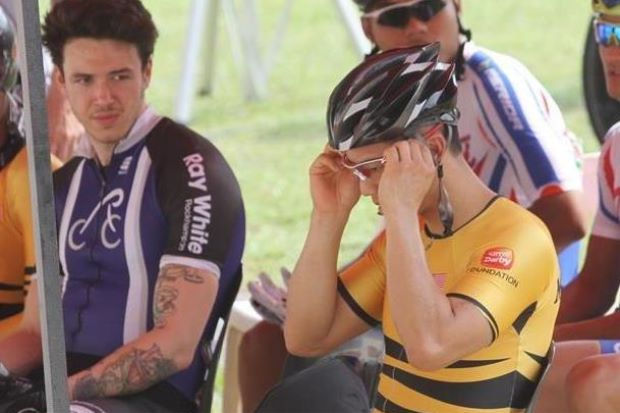Mind power can lead to marginal gains
- LIM TEIK HUAT
- Aug 23, 2016
- 3 min read

In full focus: Josiah started working with a sports psychologist late in his career at the age of 29.
PETALING JAYA: Buddha once said the mind is everything. What you think you become.
So could a better emphasis on sports psychology translate into a gold medal in Rio?
There may be room for argument but former Malaysian track cyclist Josiah Ng felt that mental strength is one common denominator all elite athletes can agree on.
The 2004 Athens Olympic keirin finalist, who posted his interesting observations on Facebook, said it would be interesting to find out how many of the 32 athletes have ever worked with a sports psychologist. And of those who had worked with one before, how many have done it on a regular basis.
“We are sending our best athletes to the Olympic Games physically well prepared but mentally they are unable to cope with the pressure and expectations.
“Before the Games, an athlete reached out to me via Facebook. “This athlete told me that while he and his team-mates were the strongest and fittest they have been, they were missing the technical element,” said Josiah.
“Concerned, I called this athlete and one of the questions I asked: what their sports psychologist feedback was. It turned out they had never worked with one before.
“I started working with one when I was 29 years old. I engaged one on my own accord and even paid him out of my own pocket for the first few months while I waited for approval from the sports administrators.
“As a whole, most of my career best performances were after I was 30. I would attribute 80% of that improvement so late in my career to my improved mental strength. Imagine if I had worked with one since the beginning of my career. Perhaps my fifth place in Athens Olympics could have been a bronze medal.
“After all, there was only a two-centimetre difference between third, fourth and fifth place or less than a fraction of a second at the speed we were riding.
“Let’s take Lee Chong Wei as another example. He has been ranked world No. 1 for 199 consecutive weeks. He is the most consistent player on the world circuit. He has also won every major out there except for the World Championships and Olympics.
“No doubt he is mentally very strong but perhaps his top tier Chinese rivals are just a fraction of a per cent better able to cope mentally during crunch time. That could be the difference.
“I would love to know if he has been working with a sports psychologist on a regular basis.
“If it were up to me, every single Malaysian athlete in the elite programme would be required to work with a sports psychologist on a regular basis. There would be assessment tests to track progression just like for their physical performances,” added Josiah.
“Sports psychology needs to be implemented in our training programmes. We also have to start looking more closely at the little things that we can improve upon. Marginal gains should be in the vocabulary of every staff member,” said Josiah.
And on a parting note, Josiah said contrary to what many thinks, successful Olympic athletes are not motivated by money alone.
“We don’t need more monetary incentives. Gold medallists are not primarily driven by money. They are driven by the desire to execute everything to perfection.
“That mentality is what we need to mine gold in Tokyo in 2020.”
Source: The Star
Comments